When you think about the pests that worry you the most, we know that mosquitoes, fleas, and ticks in Ohio are likely to have you on edge. All three of these pests are “vectors,” meaning they can spread pathogens. These pests can pose a risk to the health of you and your family (including those furry, four-legged members).
We understand that this is frustrating. After all, the last thing that you want to do is worry about spending time in your own backyard.
That’s why we’re talking about getting rid of mosquitoes, fleas, and ticks. There are definitely steps that you can take to protect your family from these unwanted pests.
Table of Contents
- What You Need to Know About Mosquitoes in Ohio
- How Do You Get Rid of Mosquitoes and Keep Them Away?
- Should You Hire Mosquito Control Services?
- What You Need to Know About Ticks in Ohio
- How to Control Ticks in Your Yard
- Don’t Forget About Fleas
- How to Choose a Mosquito, Tick, and Flea Control Company in Cincinnati and Dayton, OH
What You Need to Know About Mosquitoes in Ohio
According to the Ohio Department of Health, there are around 59 different species of mosquitoes in Ohio. The good news is that only a few of those transmit disease. Those include the Asian Tiger mosquito, Malaria mosquitoes, the Northern house mosquito, and the Yellow Fever mosquito.
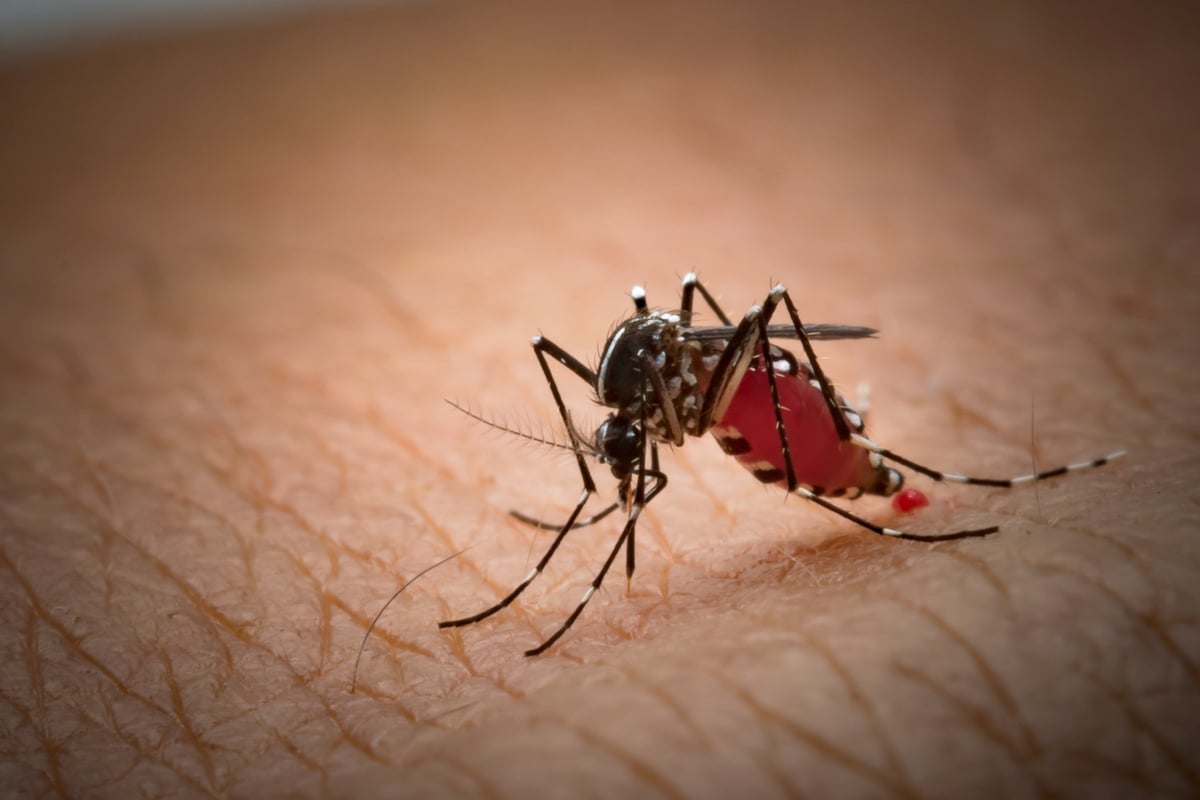
Unfortunately, the diseases that these mosquitoes can carry are quite serious. Viruses like Dengue, Malaria, Yellow fever, and Zika have the potential to be dangerous. In Ohio, these diseases are most likely to be transmitted during warmer months (typically May through October).
The Ohio Department of Health also states that the best way to prevent mosquito-borne diseases is to avoid being bitten by mosquitoes. That’s why we’ll cover how to get rid of mosquitoes in your yard in the next section.
The goal is to prevent breeding in the first place, but there are also things that you can do to kill mosquitoes in your yard if you already have a problem.
How Do You Get Rid of Mosquitoes and Keep Them Away?
There are a few steps that you can take on your own to address mosquitoes.
Get Rid of Standing Water
One of the very first things that you can do to control mosquitoes in your yard is to get rid of areas of standing water.
Since water is necessary for mosquito larvae to transform into adults, eliminating standing water is important when it comes to how to get rid of mosquitoes in the yard. Mosquito larvae feed on organic matter in stagnant water so any water that is not moving (such as a fountain) could become a prime location for mosquitoes.
Areas of standing water often include some of the following:
- Buckets, containers, and trash can lids
- Gutters
- Bird baths
- Children’s toys and wagons
- Pool covers
- Tire swings
- Tarps
- Watering cans left out in the yard
- Low spots in the yard itself
- Wheelbarrows
These are areas where water becomes stagnant. If water is flowing or has movement (like a water feature or a pool), it won’t pose a problem.
Taking care of any sources of stagnant water in your yard will help to start to reduce the mosquito population. After all, most people don’t realize this, but mosquitoes do not travel long distances. The majority of the mosquitoes you find on your property most likely originated there (or not far from there).
Cut Back Excessive Overgrowth
Mosquitoes love to hide and they’ll often seek shelter in tall grasses, shrubbery, or even around wood piles. To try and reduce your mosquito population, you must think about reducing their hang-out spots.
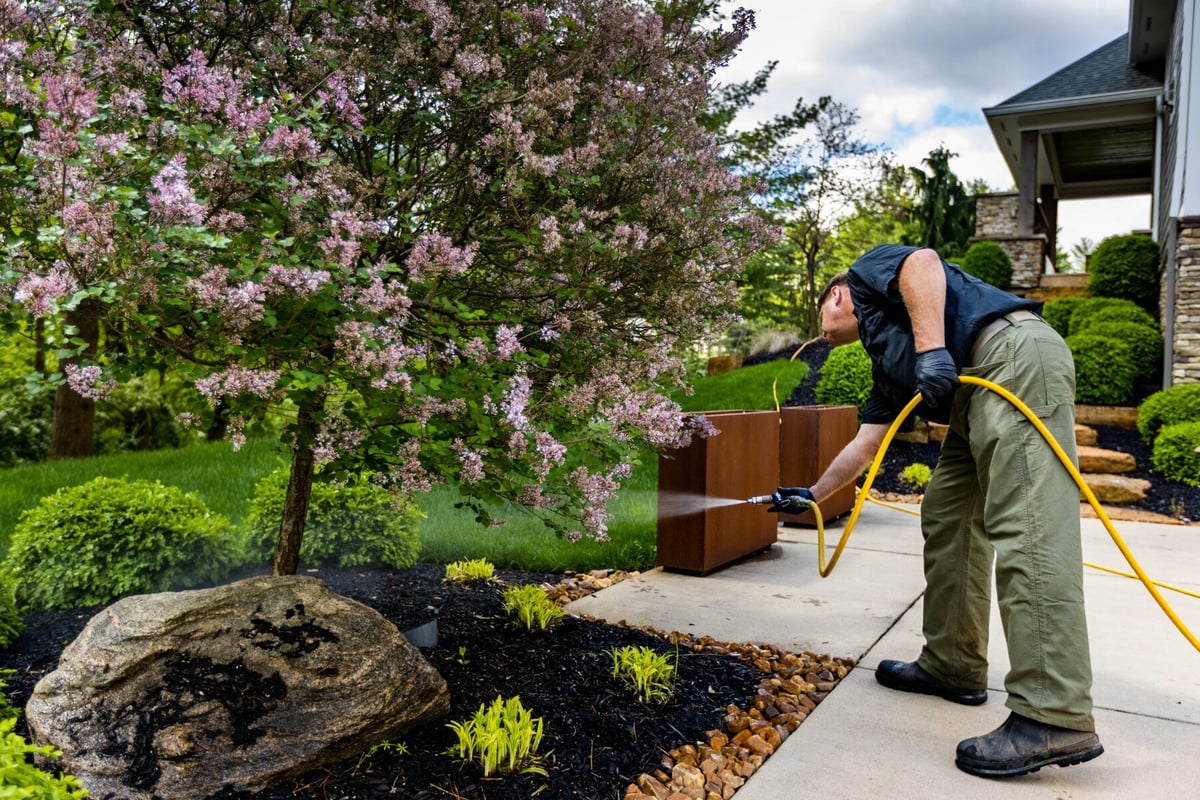
This could include keeping your lawn regularly mowed, keeping your shrubs neat and trimmed, and clearing out any debris that has collected within your plant beds. If you cover your wood pile with a tarp be sure to keep it pulled tight and weighted down to prevent water from pooling on top of it and becoming stagnant.
Keep Airflow Circulating
Mosquitoes are weak fliers, so another way to deter them from a hangout area is with good airflow. If you have a covered patio area and can have a ceiling fan installed, it will definitely deter mosquitoes from that spot.
While the wind created by a fan is more challenging for a mosquito to fly against, that’s not the only reason that it keeps them away. Studies have shown that a fan also dilutes and disperses the carbon dioxide that people breathe out, therefore, prevents mosquitoes from being attracted to you in the first place.
Should You Hire Mosquito Control Services?
In addition to taking some of the steps above, you’ll also want to treat your yard for mosquitoes. With a pest as potentially dangerous as the mosquito, a multi-faceted effort is key.
That’s because mosquitoes are incredibly persistent. Eliminating areas of standing water and maintaining a tidy property will start to make a dent in your mosquito population. However, because mosquitoes require such a small amount of water to breed, it’s almost impossible to ensure you’ve gotten ALL areas of standing water.
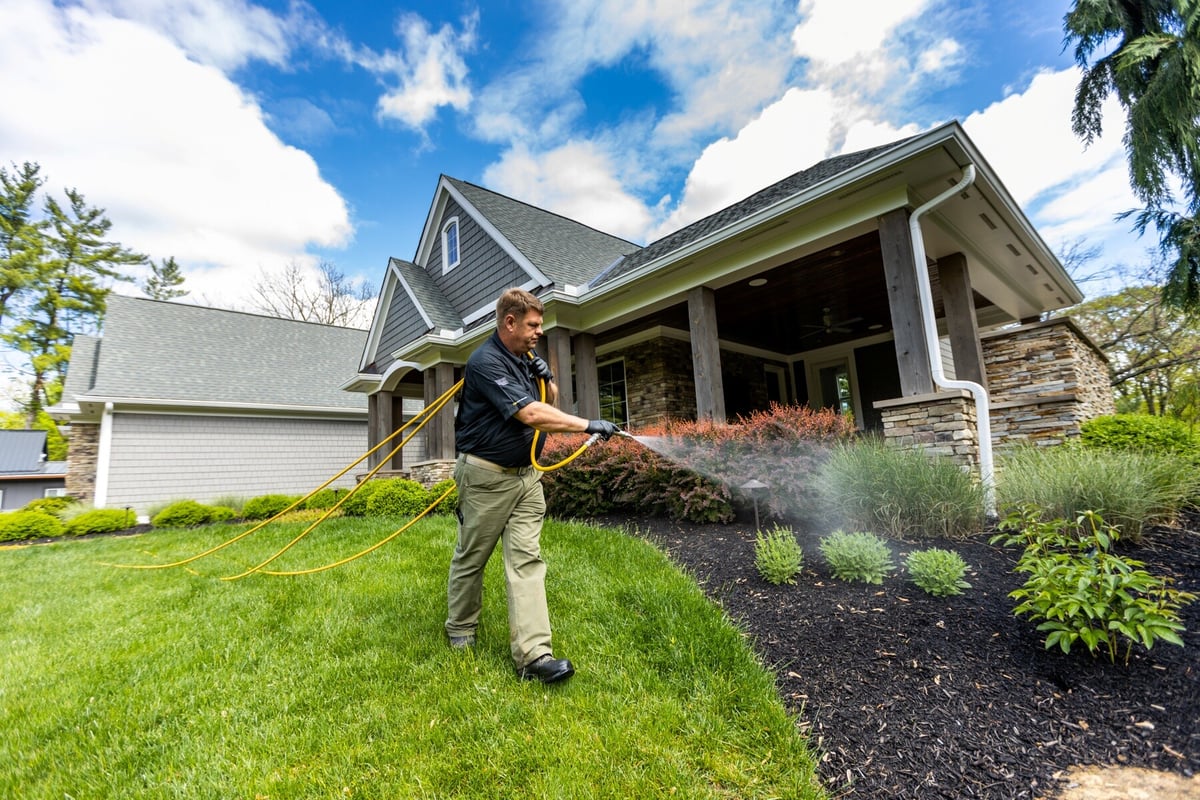
Not only that…but oftentimes, mosquito problems originate from a neighbor’s house. Perhaps their breeding ground is just over your property line where the neighbors have clogged gutters or lots of overgrowth.
You want to kill mosquitoes in your yard that are already an existing problem. This means using a mosquito control program that targets existing mosquitoes on your property.
Mosquito control can be very effective at diminishing the mosquito population on and around your property.
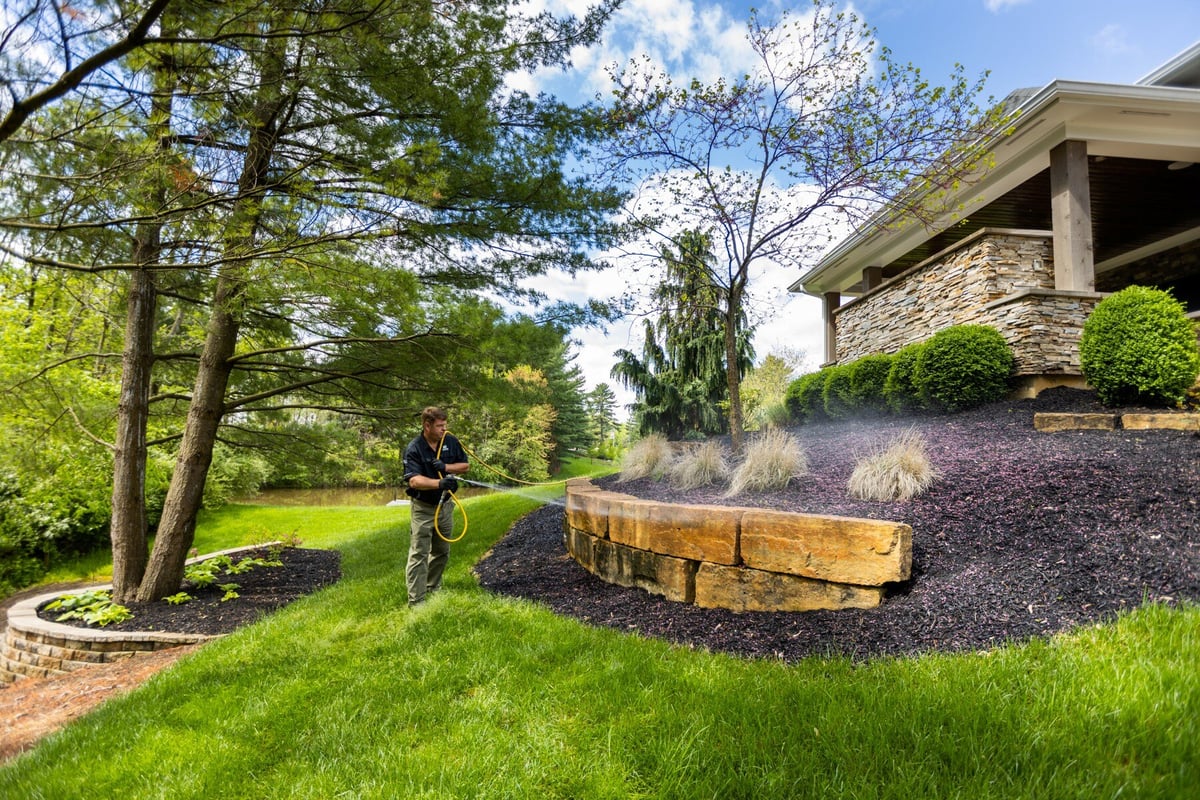
Since there are a lot of mosquito control companies out there, you’ll need to do your research and find a company that you can trust. You want to know that the company you choose has your best interest at heart. That means they aren’t adding a lot of unnecessary applications just to rack up your bill. In actuality, five treatments should suffice in spite of the fact that some companies spray more often.
You also want to find a mosquito control service in Ohio that has well-trained technicians and uses best practices in treating your yard.
What You Need to Know About Ticks in Ohio
Though they seem to be on the news a lot more lately, ticks in Ohio and Northern Kentucky have always been a problem. Concern over Lyme Disease as well as newer tick-borne diseases that have emerged, such as the Powassan Virus (referred to as POW for short), have many people worried about ticks.
POW has been named more dangerous than Lyme Disease and it’s got a lot of homeowners concerned about what they ought to be doing.
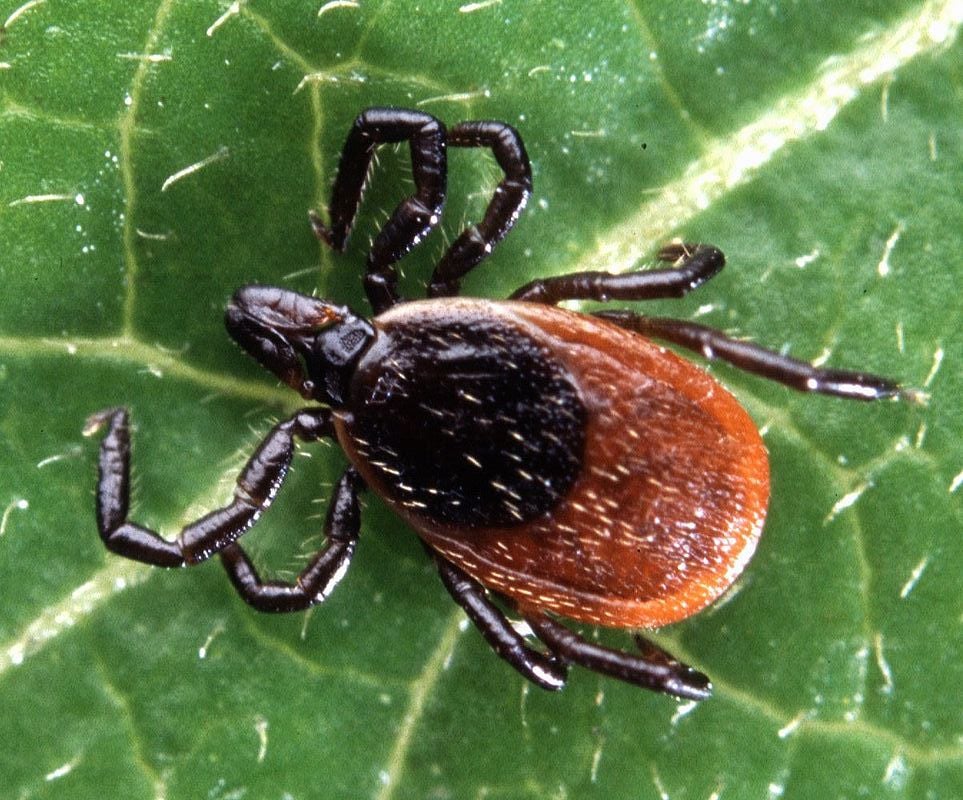
While disease is the scariest prospect of having ticks in your yard, they are also a nuisance to your family and your pets. The last thing you feel like doing after enjoying an evening in the yard is combing through your children’s hair and pet’s fur. Tick bites can be painful, cause irritation, and of course can also transmit disease. There are a lot of good reasons to keep these pests as far from your property as possible.
People are often surprised that only Deer Ticks carry Lyme Disease. POW, on the other hand, is said to be transmitted by the Blacklegged Tick and the Groundhog Tick.
The most active time for ticks in Ohio is our warmer months, however, ticks actually do feed all year long. Though not nearly as active in the winter, they’re often still around (especially during milder winters).

Contrary to popular belief, ticks do not fly, jump, or even fall from trees as many think. They crawl slowly, and tend to wind up on you when you stand in or near their habitat.
Ticks use a hunting technique called “questing”. They hold onto vegetation and put some of their legs out. When prey passes by, they immediately let go and latch on. If you’ve walked through tall grass or wooded areas, you should absolutely be diligent about checking yourself, your loved ones, and your pets for ticks.
How to Control Ticks in Your Yard
While people often think of ticks lurking in fields and on trails (and this is certainly true), ticks can also be found in residential backyards. Ticks typically make their way into people’s yards on the backs of host animals. In other words, any rabbits, deer, rodents, or other creatures passing through your yard could potentially be carrying ticks.
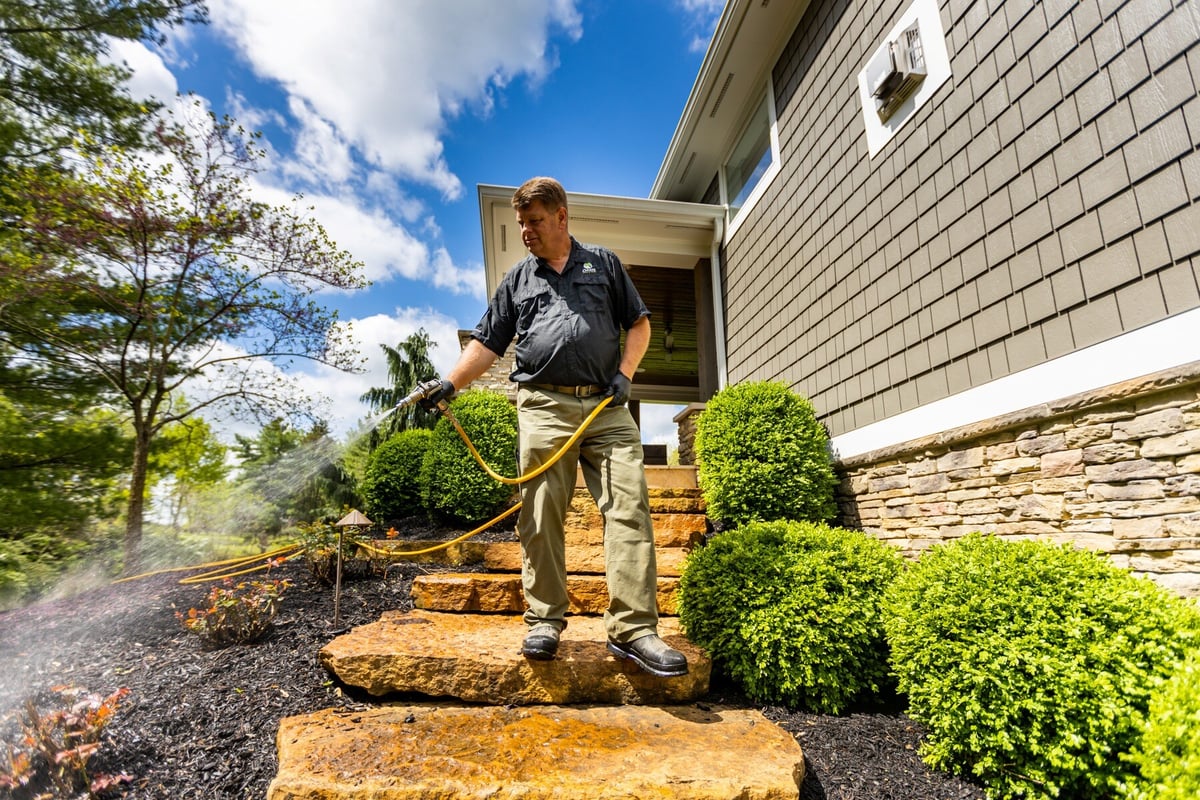
This is why it’s important to also think about tick control for your yard. There is no 100 percent foolproof way to prevent ticks in your yard (which is why yard treatment for ticks is so important). But there are a few steps that you can take to make your yard less inhabitable.
Keep Wildlife Away
Since ticks often do make their way into people’s yards via wildlife, any wildlife control strategies that you implement can also deter ticks. Keep trash can lids secure, avoid leaving food out, and keep your woodpile as neatly and tightly stacked as possible to try and deter rodents from taking up residence. It also helps to keep your wood pile tightly covered.
Keep Grass and Brush Trimmed
Like mosquitoes, ticks also love to “hide,” so keeping your grass neatly mowed and avoiding overgrowth by keeping trees and shrubs regularly trimmed can make a difference in reducing tick habitats.
Certain properties are going to be more prone to tick problems than others. “Border areas,” where a residential property backs up to a wooded area tend to be a thriving tick habitat.
One way that you can minimize ticks from crossing into your yard from these wooded areas is to create a barrier of wood chips or gravel. The CDC advises this barrier be approximately three feet wide. This will help to restrict migration from the woods to the lawn.
Always Check for Ticks
Preventing tick-borne illnesses means being diligent about checking yourself, your children, and your pets for ticks. Even if you’re taking steps to reduce tick populations on your property, you should still check that you haven’t mistakenly picked up a tick (maybe not even at your home, but somewhere else).

Treating Your Yard for Ticks
It is also our recommendation to invest in tick control services, as treating for ticks that are already there will give an important added layer of protection. As we mentioned, even with your best efforts, wildlife may still pass through and leave ticks in your yard.
But professional tick control will target ticks that already live on your property. In fact, our tick program also covers fleas and ants, so you get the added bonus of dealing with these pests, too.
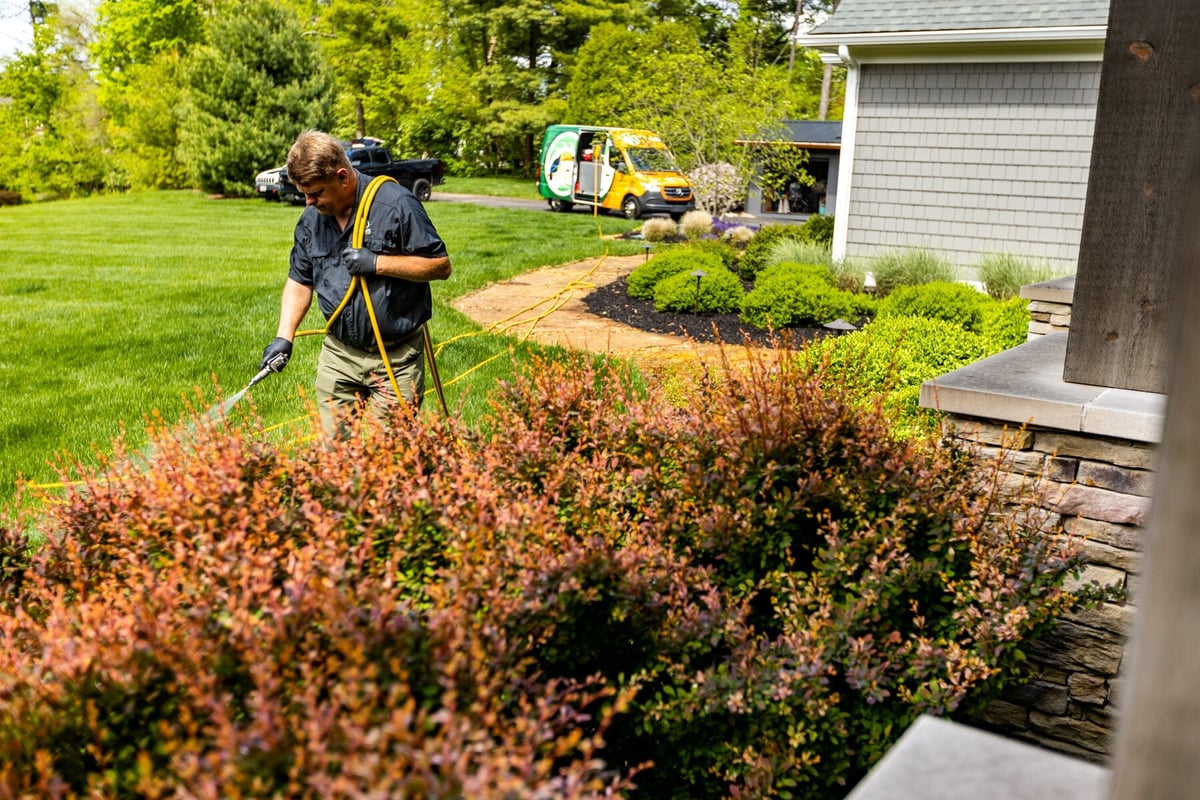
At Oasis, our flea and tick control program in Cincinnati, Dayton, Oh and Northern Kentucky includes spraying the entire lawn. That’s because these pests can be lurking anywhere.
Even when investing in tick control for your yard, we want to emphasize the importance of continuing to check your children and pets for ticks since they are such a dangerous pest. And tick yard treatment should not be a substitute for any recommendations made by your veterinarian for your pets. After all, pets may still pick up ticks in other locations so you want to remain diligent about protection.
Don’t Forget About Fleas
Fleas in Ohio are another burden, particularly if you have pets. Fleas may be tiny (usually only 1 to 3 mm in length), but they can still cause major trouble.
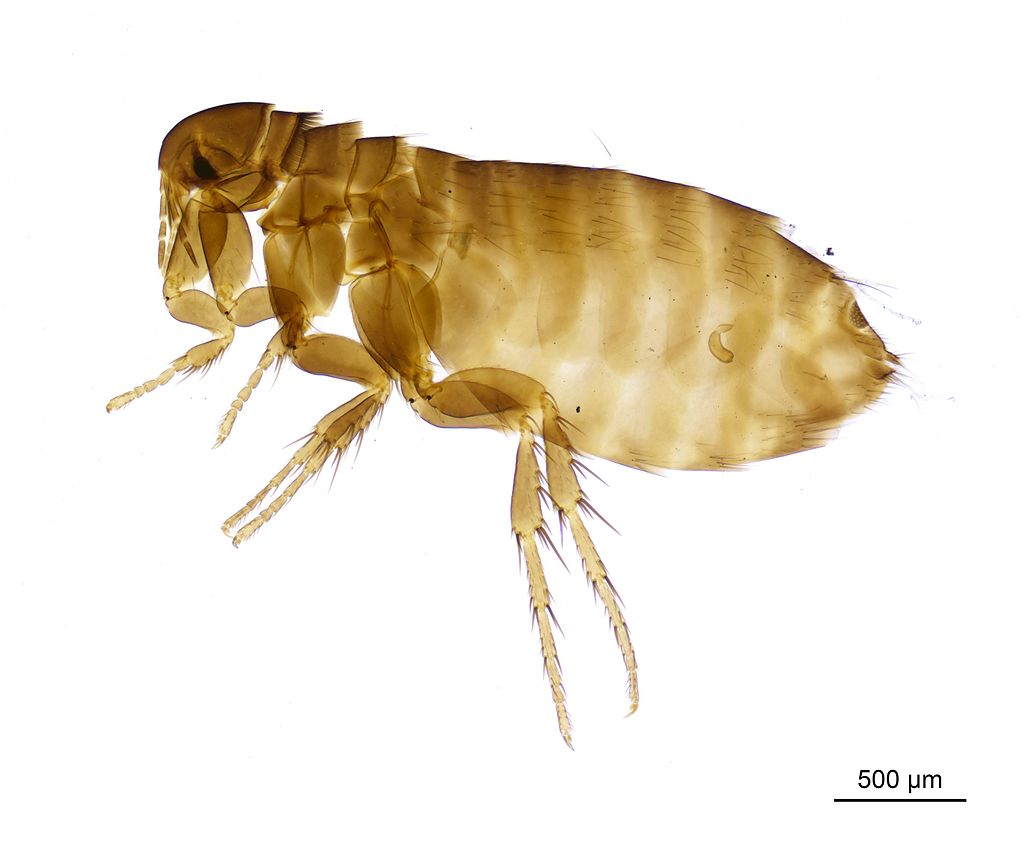
Their small size also gives them an advantage. Unfortunately, most people do not realize they have a problem with fleas until it’s already an infestation. While fleas may start out on your pet, their eggs may roll off and end up throughout the lawn, spreading the problem. Just a few fleas can easily turn into a total infestation.
Fleas are a type of pest that rely on blood throughout their entire lifespan. Fleas live on their host and use their mouthparts to feed on blood. For this reason, they are relentless in finding a host. And since fleas tend to prefer animals, your pet is at risk if you have fleas lurking in your yard.
Flea Treatment for Yards
The good news is that there are ways to kill fleas in your yard. As we mentioned, the program that we offer for tick control, also happens to work for fleas (and ants), so that you can be more fully covered.
A lot of people ask why they would need multiple treatments if the flea control products kill fleas. It’s important to recognize that even though the first application will kill the majority of the fleas in your yard, even a few remaining fleas can start reproducing and start the cycle all over again. On top of that, you have to remember that wildlife can continue to bring new fleas into your yard.
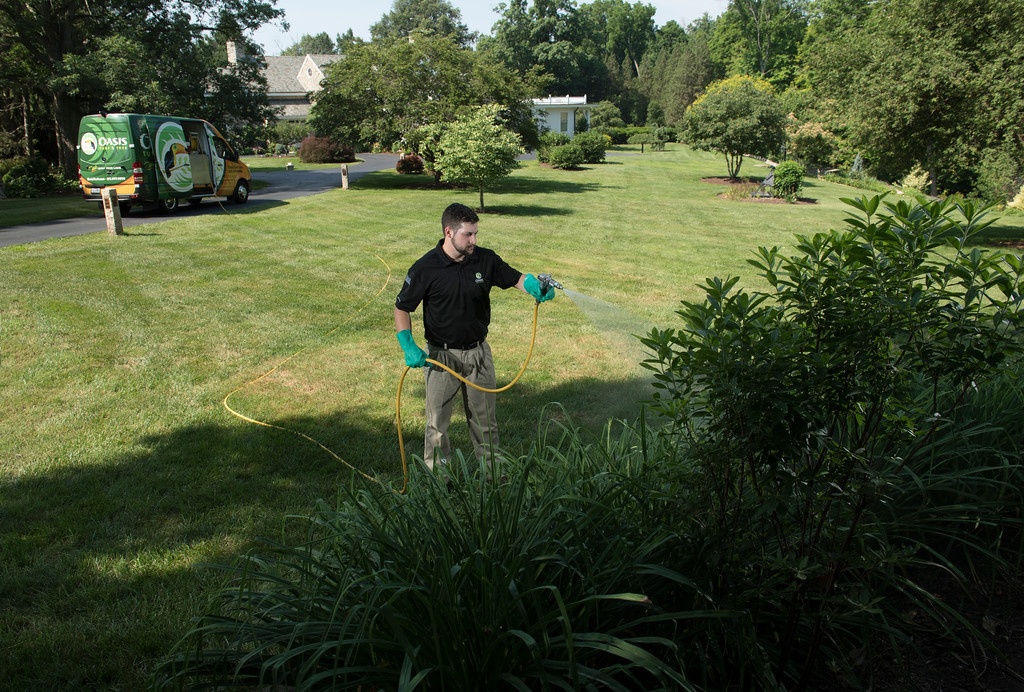
This is why it’s vital that each application of product builds upon the treatment before it. This is important as the product does start to wear off over time.
Because these products are safe, they also don’t last forever. You must continue spraying the lawn for fleas with a product that is environmentally responsible and safe for kids and pets to play on.
How to Choose a Mosquito, Tick, and Flea Control Company in Cincinnati and Dayton, OH
Even if you are taking preventative measures of your own, it will still greatly benefit you to invest in professional control solutions. As we’ve already mentioned, the more layers of protection that you can have, the better.
There are certainly various mosquito, tick, and flea control services Cincinnati, Dayton, Oh, and Northern Kentucky so you have options. The key is to choose a company that you feel confident has your best interest at heart.
As we mentioned previously, doing some research and finding a company that is devoted to training and offers safe and effective solutions is key.
At Oasis Turf & Tree, we have a Mosquito Control Program as well as an Ant, Flea, & Tick Control Program, so that we can meet all of these needs.
Many of our clients love that we are not a stand-alone pest control service and that we can handle their lawn and plant health care needs, too.
By working with Oasis Turf & Tree for pest control in Cincinnati, Dayton, OH, and Northern Kentucky, these services can be added on to your already routine lawn or tree care program, with bundled discounts, in order to give you a tremendous amount of value for your investment.
At the end of the day, it’s all about delivering peace of mind.
When you invest in mosquito, tick, and flea control services Cincinnati, Dayton, Oh, and Northern Kentucky you gain valuable confidence that your yard is safe.
If you’d like to find out more about mosquito, flea, and tick control for your Cincinnati, Dayton, Ohio, or Northern Kentucky yard, contact us for a free consultation or give us a call at 513-697-9090 so that we can answer your questions.

